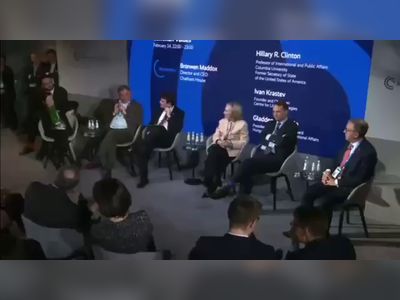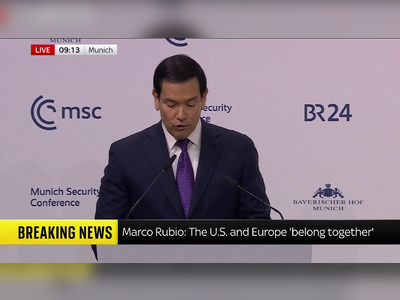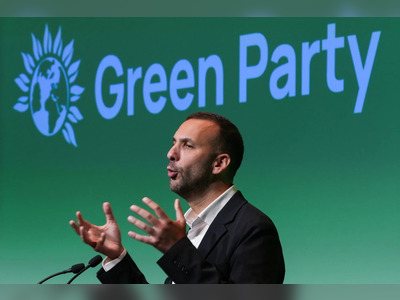
Taliban Face Critical Need For International Aid
The Taliban have promised to improve Afghanistan's economy, but to do that the new regime will need foreign aid -- and there is no guarantee it will get the funds it needs.
Some major donors already halted their support for the country, one of the world's poorest, and the World Bank and IMF also may freeze financial aid if major governments fail to recognize the new leadership.
"Afghanistan is tremendously dependent on foreign aid. Foreign aid is about 10 times or even more than the Taliban has been able to obtain from its own finance," said Vanda Felbab-Brown, an Afghanistan specialist at the Brookings Institution, a Washington think tank.
"International economic aid, and access to international economic funds will be crucial."
In 2020, aid flows represented 42.9 percent of Afghanistan's $19.8 billion GDP, according to World Bank data.
"Afghanistan's economy is shaped by fragility and aid dependence," the Washington-based development lender said.
Opium and taxes
The Taliban gets much of its revenue from criminal activities such as the cultivation of poppies used to make heroin and opium, as well as from drug trafficking, according to a May 2020 report from a UN Security Council sanctions committee.
Extortion of businesses as well as ransom from kidnapping also provide income, according to the report which estimated the group's revenues at $300 million to $1.5 billion a year.
The Taliban is expert in taxing just about everything in areas they control, from government projects to goods, and "they will continue to use that as a source of funding," said Charles Kupchan, a senior fellow at the Council on Foreign Relations.
The international community has spent billions of dollars over the years to help Afghanistan eradicate poppy cultivation, but the country still produces more than 80 percent of the world's opium.
The industry employs hundreds of thousands of people in a country with high unemployment after 40 years of conflict.
The Afghan economy has taken a hit during the Covid-19 pandemic, and the Taliban has acknowledged that it cannot improve the situation without foreign help.
"We have spoken to many countries. We want them to work on our economy. We want them to help us," Taliban spokesman Zabihullah Mujahid said Tuesday.
However as they did when they ruled the country from 1996 to 2001, the group will ban opium production, he said.
Friendly relations?
The reception the group received following the shock takeover of the capital Kabul appears less reserved than during the first stint in power.
Russia, China and Turkey have all welcomed the Talibans' first public statements. However, many donor countries, starting with the United States, are wary.
Washington has insisted that it expects the Taliban to respect human rights, including those of women.
Canadian Prime Minister Justin Trudeau said his country has "no plans" to recognize the Taliban.
Germany announced the suspension of its development aid on Monday. Berlin was going to provide 430 million euros ($503.1 million) in aid this year, including 250 million euros ($292.5 million) for development.
"They have an interest in trying to preserve at least a measure of good standing in the international community, because they want ... political support and economic assistance," Kupchan said.
It is not clear if neighboring China, the world's second-largest economy, will fill the void should relations with western nations remain cold.
"The Chinese are very mercantilist. They tend to be more interested in countries with good business environments," Kupchan said.
Beyond their cash on hand, the Taliban may have few other funds to draw upon: most of the country's reserves are held overseas, Afghanistan's central bank chief said Wednesday.
The majority are in the United States, where President Joe Biden's administration said the Taliban will not have access to them.
And Western Union announced it was temporarily cutting off wire transfers to the country -- another vital source of cash for the people.
According to the World Bank's most recent estimates from May, remittance flows to Afghanistan from overseas were estimated at $789 million in 2020.











